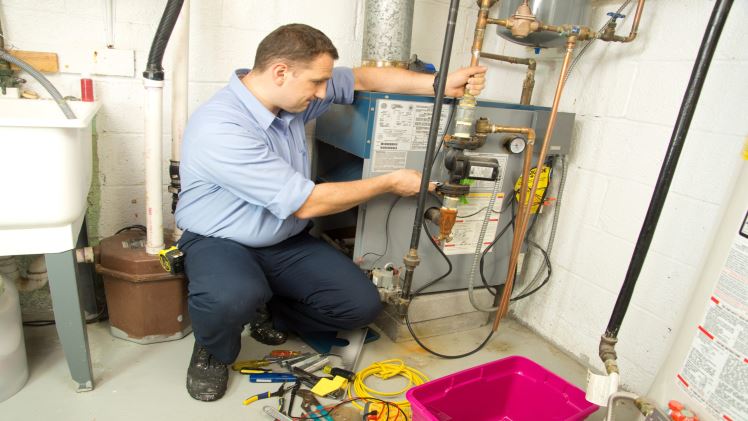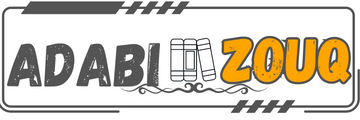Common Signs Your Heating System Needs Repair

As the temperature drops and winter sets in, your home’s heating system becomes critical to keeping you and your family comfortable. Heating systems, like all mechanical systems, can develop problems over time. Recognizing the signs that your heating system requires repair is critical for avoiding unexpected breakdowns and keeping your home warm and cozy during the colder months. In this blog, we’ll look at some of the most common signs that your heating system needs professional attention.
- Inadequate Heat Output
A noticeable drop in heat output is one of the most obvious signs that your heating system requires repair. If you notice that your home isn’t as warm as it should be, even when the thermostat is set to a comfortable temperature, it’s time to look into the problem. For heating repair Hendersonville, trust the experts at NexGen HVAC to ensure your home stays warm and comfortable.
Possible Causes Include:
- Filters that are clogged or dirty: Restricted airflow can make it difficult for the system to generate enough heat.
- Faulty thermostat: A faulty thermostat may fail to accurately control the temperature, resulting in insufficient heating.
- Ductwork issues: Heat loss can occur due to leaks or damage in your ductwork before it reaches your living spaces.
- Strange Sounds
While heating systems make some noise when they operate, any sudden or unusual sounds should not be ignored. Strange noises may indicate underlying issues that require immediate attention.
Possible Causes Include:
- Loose or broken system components, such as blower fan blades or motor mounts, can cause rattling or banging noises.
- Whistling or hissing: These sounds can be caused by air leaks or ductwork problems.
- Grinding or squealing: These sounds are frequently indicative of a problem with the system’s bearings or motor.
- Regular Cycling
Short cycling occurs when your heating system frequently turns on and off. This could indicate a number of problems, such as a faulty thermostat, dirty air filters, or heat exchanger problems.
Possible Causes Include:
- Problems with the thermostat: A faulty thermostat can misread the temperature, causing the system to cycle on and off incessantly.
- Cracks or damage to the heat exchanger can cause short cycling as a safety measure to prevent dangerous carbon monoxide leaks.
- Unreliable Heating
Inconsistent heating throughout your home, with some rooms feeling warmer than others, is an obvious sign that your heating system needs to be repaired.
Possible Causes Include:
- Ductwork damage: Leaks or blockages in your ductwork can cause uneven heating.
- Zoning issues: If your heating system is capable of zoning, a faulty zoning control system can result in inconsistent temperatures.
- Increased Energy Bills
A sudden increase in your energy bills without a corresponding increase in heating usage may indicate that your heating system is inefficient. When the system isn’t working properly, it has to work harder and consume more energy to keep the temperature stable.
Possible Causes Include:
- Components that are dirty or clogged: Dirt and debris can reduce system efficiency and increase energy consumption.
- Inadequate maintenance can result in decreased efficiency and increased operating costs.
- Pilot Light Problems
Problems with the pilot light on gas-fired heating systems can be a clear indication that repairs are required. It is critical to have the pilot light inspected if it frequently goes out or appears yellow or orange instead of blue.
Possible Causes Include:
- Dirty or clogged pilot assembly: Dirt or debris can clog the pilot light and cause it to flicker or go out.
- Problems with thermocouples: A faulty thermocouple may fail to detect the presence of the pilot light, resulting in shutdowns for safety reasons.
- Strange Smells
Unusual or foul odors emanating from your heating system should be taken seriously. These odors can be anything from a burning odor to a musty or moldy odor.
Possible Causes Include:
- Dust or debris buildup: When the heating system first starts up for the season, accumulated dust or debris within the system can produce a burning odor.
- Damp conditions within the system can promote mold or mildew growth, resulting in musty odors.
- Flickering Yellow Flame
A steady, blue flame indicates proper combustion in gas furnaces. A yellow or flickering flame could indicate a problem with the furnace’s combustion process, which could be dangerous.
Possible Causes Include:
- Inadequate combustion air: Inadequate combustion air can cause the flame to burn inefficiently and produce a yellow color.
- Carbon monoxide problems: A yellow or flickering flame can indicate the production of carbon monoxide, which is a serious safety concern.
Carbon Monoxide Detector Warnings
It’s critical to take your carbon monoxide (CO) detector seriously if it goes off. CO is a colorless, odorless gas that can be produced by heating systems that aren’t working properly. CO poisoning can cause dizziness, nausea, headaches, and even death.
Possible Causes Include:
- Heating system malfunction: A malfunctioning or poorly maintained heating system can produce high levels of carbon monoxide.
- Blocked flue or vent: Blockages in the exhaust flue or vent can prevent CO from leaving your home safely.
- The System’s Age
Finally, the age of your heating system can have an impact on its performance. Most heating systems have a 15 to 20-year lifespan. If your system is approaching or has passed this age range, it may be more prone to breakdowns and inefficiency.
Conclusion
Recognizing the common signs that your heating system requires repair is critical for keeping your home comfortable and safe during the winter months. If you notice any of these symptoms or other unusual behavior from your heating system, you must act quickly and consult with a qualified HVAC technician. Repairing your heating system on time not only ensures that it operates efficiently, but also contributes to its longevity and the well-being of your home and family. Don’t wait until the cold weather arrives to address heating system issues; instead, take preventative measures to keep your system in good working order and contact us now for expert advice.




